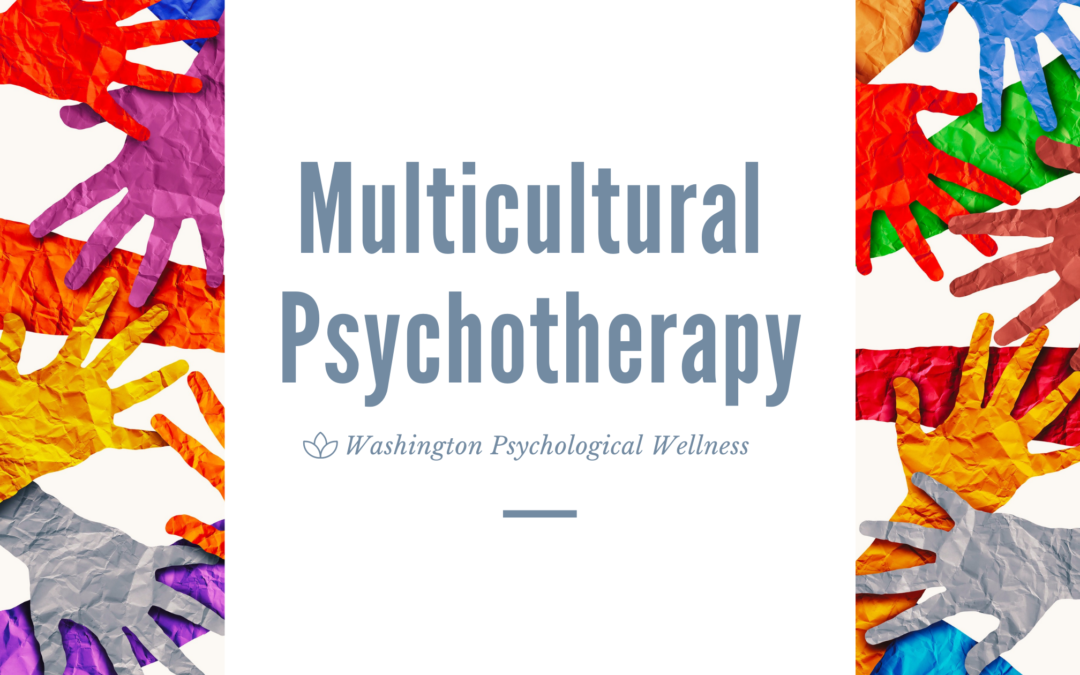The Role of Multiculturalism in Effective Psychotherapy
What are multicultural issues?
Multicultural concerns are related to many different topics and identities, including race, religion, ethnicity, culture, sexual orientation, or disability.
Each individual is exposed to different cultures, customs, beliefs, and practices that influence how they interact and see the world.
Due to these differences, people from differing cultural groups may be subjected to negative stereotypes or discrimination.
Multicultural concerns have historically affected Native Americans, African-Americans, Italians, Asian-Americans, Middle Easterners, Jewish people, and many other groups. School, work, and social settings can be made up of people from various cultures, leading to tension or disagreements about opinions and beliefs.
What are the causes of multicultural issues?
Every person grows up surrounded by unique languages, beliefs, cultures, friends, clothing, food, and interaction styles.
These factors lead us to think and behave in specific ways that may be different from others. This can be beneficial because it provides a basis for enhanced cultural competency, stimulating conversation, and exposure to other living forms. Still, it can also lead to tension, discrimination, and stereotypes towards others.
Ethnocentrism describes the mindset of evaluating other cultures based on the standards and customs of one’s own culture. Many people view their way of living as “normal” and judge others who deviate from their lifestyle, such as following a different religion, speaking another language, or eating unfamiliar types of food.
This can be an unconscious process that results from a lack of exposure to different types of people or enforced in parenting or education. However, it can lead to a divide between various groups in social settings, work, school, and other institutions.
Individuals who immigrate from foreign countries may find themselves surrounded by others with different customs, beliefs, and ideas. These differences may lead to isolation or a lack of understanding from others that can inhibit cultural diversity and acceptance.
What are the effects of multicultural issues?
Identity, race, or heritage can play a role in someone’s health throughout their life.
Some ethnic groups are more at risk for some health issues, including cardiovascular disease, HIV/AIDS, and osteoporosis. People of color are also more vulnerable to problems with eating and body image.
Stress and isolation caused by marginalization and inadequate treatment can severely affect one’s mental and physical well-being and contribute to depression and anxiety.
Cultural views may also affect how a person is medically treated or whether they are treated at all. Certain groups of people are more likely to live in areas without proper medical care or access to the components necessary for a healthy lifestyle. It can also be more difficult for minorities to find medical professionals who consider cultural differences specific to their situation.
Misunderstandings or ignorance toward cultural differences can lead to violence that may require medical attention. Minorities are less likely to seek medical treatment or mental health help in fear of stigma, discrimination, and other factors resulting in worsening issues.
Additionally, cultural differences may affect how people view and describe symptoms they are experiencing. For example, some cultures may shame individuals for talking about depression, while others respond with compassion and concern. As a result, some people may be less likely to recognize their symptoms and reach out for help.
Do I need therapy for my multicultural issues?
It can be challenging to reach out for help as a result of multicultural influence. For example, you may feel the need to conform to the customs and beliefs of others to avoid judgment, or perhaps you grew up in a stigmatized setting that dismissed mental health.
If you are wondering if therapy might be helpful for your situation, some of the following descriptions may guide you in making an informed decision:
- You feel the need to hide your issues to avoid being a burden to others
- You worry that you are annoying or unwanted by family, friends, or other individuals
- You are experiencing shame and guilt for not meeting the expectations of others
- Traditions and social rules have prevented you from talking about your issues
- You feel the need to fit in or conform to other standards
- You are conflicted about following family/societal customs and your desires
- You feel an overwhelming obligation to your family and loved ones
There are more ways in which multicultural issues may affect your physical and mental well-being, and each situation is unique to the individual. However, if you resonate with some or all of the above statements, therapy may be beneficial for you.
How can therapy help my multicultural issues?
At Washington Psychological Wellness, our therapists strive to understand how cultural differences affect the therapeutic dynamic, even when these are not the session’s focus.
Any mental health professional must be aware of possible cultural concerns and adjust their communication or other behaviors. Our therapists place a higher emphasis on multicultural competency, inclusivity, and awareness than other traditional therapies.
The likelihood of someone seeking health or treatment from medical professionals is heavily affected by cultural views, as is the treatment outcome. Depression, for example, may be viewed as a reason for therapy in some cultures while it is not addressed or cause for concern in others.
Additionally, recently immigrated individuals may be feeling depressed but could also be experiencing adjustment issues in a new landscape.
Our therapists have a deep understanding of these multicultural differences and can help navigate these issues. They will also assist in acclimating to new environments and anticipate problems due to cultural differences.
What are my next steps?
Addressing the problems that accompany multicultural issues will take time to work through. At Washington Psychological Wellness, we understand that unique cultural experiences lead us to think and behave differently.
Your therapist will help you understand the difficulties you are experiencing and address them without compromising your values and goals. Our therapists are passionate about helping you achieve your goals and overcome obstacles.

